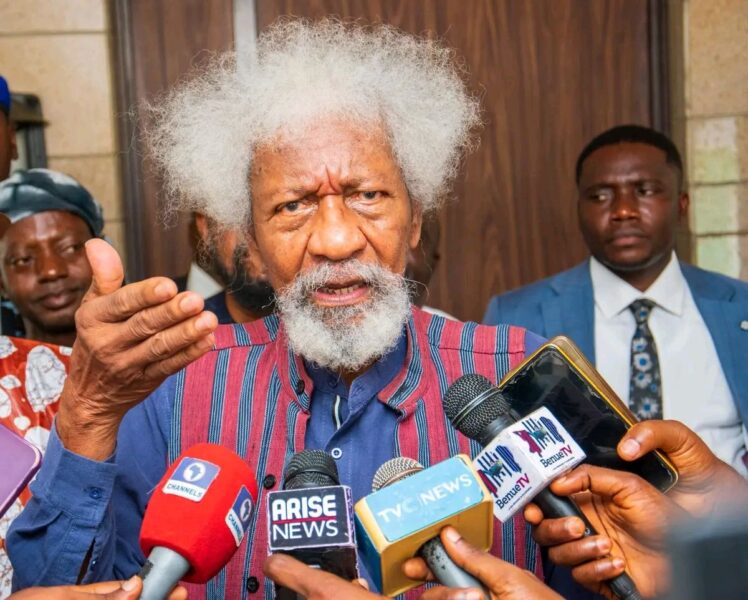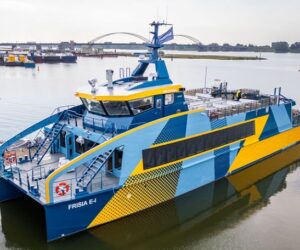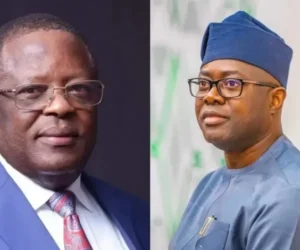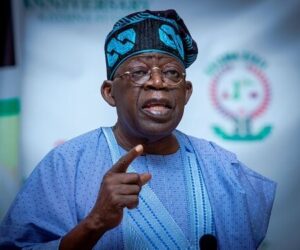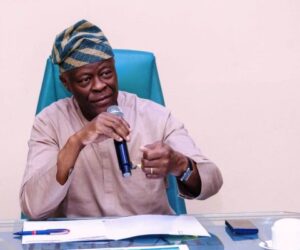Nobel Laureate Professor Wole Soyinka has cautioned Nigerian leaders to exercise care in accepting foreign assistance, warning that external interventions could worsen the country’s security challenges.
Soyinka stated this while speaking to journalists on Friday at the Government House in Makurdi, shortly after a closed-door meeting with Governor Hyacinth Alia, during the former’s visit to the state.
The renowned playwright, who applauded Alia’s developmental strides, recalled that under the previous federal administration, Benue became a hub for terrorists in the North Central region.
SPONSOR AD
He criticised former President Muhammadu Buhari for, according to him, failing to stop the killings, noting that he was among the few who boldly challenged the administration’s policies.
The nobel laureate further said he was in Benue to follow up on educational materials he donated during an earlier visit when many displaced children were out of school.
Soyinka later toured parts of Makurdi to inspect ongoing projects executed by the Alia administration and also visited several internally displaced persons (IDP) camps to sympathise with the affected families.
Alia, speaking to journalists, dismissed claims that he had denied the killings of Benue residents by bandits and terrorists, insisting that his earlier comments were misinterpreted and taken out of context.
The governor said it was important for the public to understand the proper context and global meaning of terms such as genocide.
He explained that discussions around genocide must be based on the United Nations’ definition and historical context, noting that many people use the word loosely without considering its origin, interpretation, or the criteria that qualify an event as genocide.
He added that his earlier remarks about attackers “executing their plans religiously” was an idiomatic expression similar to someone saying a task was carried out judiciously, meaning consistently and not in any religious sense, adding that the misinterpretation of his statement caused unnecessary confusion.
“I never denied that my people were killed. I remain very firm that we have bandits and terrorists who come fully organised to destroy, maim and kill. I have consistently, yes, religiously stated that their aim is land grabbing. This did not begin as anything religious,” he said.
Alia maintained that the crisis began as farmer-herder conflicts before escalating into full-scale banditry and terrorism, noting that people from different faiths and backgrounds have suffered losses.
He, therefore, clarified that attempts to frame the killings as religiously motivated were misleading and harmful.
The governor cautioned journalists against politicising the tragedy or amplifying misinterpretations, urging the media to seek clarification whenever issues arise rather than worsening tensions through inaccurate interpretations.
“You journalists are great minds and great hands. You are not weapons of mass destruction; you are weapons of societal construction. When something is unclear, one phone call can clarify it instead of confusing the entire society,” he added.
Alia stressed that every loss of life in Benue weighs heavily on him as governor and called on the public to avoid trivializing the suffering of displaced families.
He addet that the state has suffered attacks and violence, with its people forced out of their ancestral homes, hence the large number of IDP camps in Benue today.
The governor also warned against turning the crisis into a single narrative issue, saying, “The situation is multi-sectoral. Don’t reduce it to religion. Both Muslims and Christians have been killed. Benue is the most populous Christian state in the North, so naturally there are unspoken expectations, but let us not politicise people’s pain.”
He, however, posited on development matters, that his administration had awarded several arterial road projects within Makurdi, with full construction set to begin next week following the completion of preliminary works.
Alia commended Professor Soyinka for his genuine concern for the people of the state and for visiting to see the progress being made.
As a Nigerian living here or in the diaspora, DO YOU HAVE A PLAN B? Just in case anything goes wrong, is there a side business you can fall back on? We show you step by step how you too can start earning US Dollars consistently. Nigerians can now make as much as $20,000 to $35,000 with premium domains. Ideal for business owners, entrepreneurs, and workers.
Click here to find out how it works

